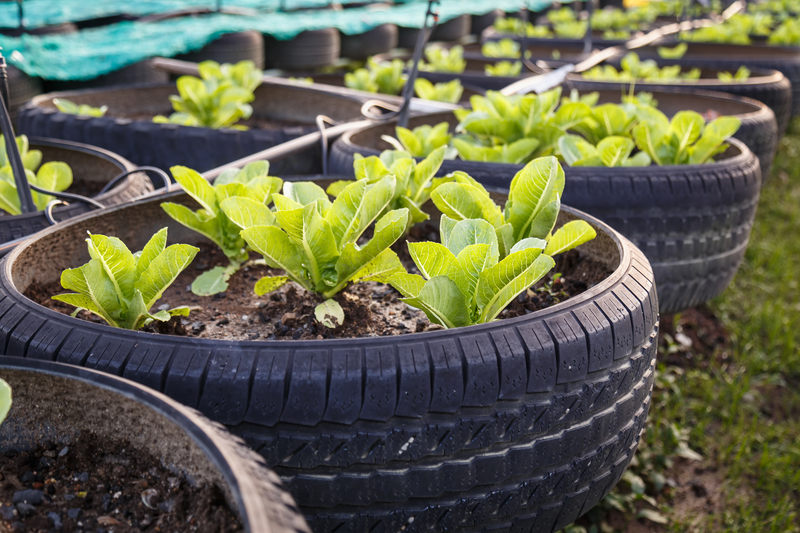
Quick Reference to Hard Rubbish with Disposal Insights
Efficiently managing hard rubbish can often be perplexing due to the diverse items involved. From worn-out furniture to obsolete electronics, understanding how to dispose of these items responsibly not only benefits the environment but also ensures that you comply with local regulations. This guide provides a comprehensive overview and *valuable insights* into hard rubbish disposal.
What is Hard Rubbish?
Hard rubbish refers to bulky waste items that are not typically collected with your regular waste or recyclable materials. This category includes a wide range of items such as:
- Broke furniture like couches, wardrobes, and tables
- Old whitegoods including refrigerators, washing machines, and ovens
- Electronic waste (e-waste) such as televisions, computers, and printers
- Mattresses and bed frames
- Miscellaneous household items: carpets, rugs, and tiles
These items tend to accumulate over time and require special disposal methods due to their size and potential for environmental harm.
Why Proper Disposal of Hard Rubbish Matters
Disposing of hard rubbish responsibly is crucial for several *compelling reasons*:
- Environmental Impact: Improper disposal can lead to environmental degradation as many hard rubbish items are not biodegradable.
- Landfill Management: By recycling or properly processing these items, the burden on landfills can be significantly reduced.
- Resource Recovery: Many components can be recycled, thereby conserving natural resources by reducing the need for new raw materials.
- Legal Compliance: Adhering to regulations helps avoid potential fines or legal issues.
Methods of Hard Rubbish Disposal
Proper disposal of hard rubbish is not only a legal requirement in many areas but also a practical step towards sustainability. Here are some of the most effective disposal methods:
Council Collection Services
Many local councils offer scheduled collections for hard rubbish. Residents can place their items out for curbside pickup on designated dates. This service is usually free or included in local waste management fees.
Drop-off Points and Transfer Stations
Drop-off centers and transfer stations are set up in numerous regions where you can take your hard rubbish. Check your local facilities for accepted items and any associated fees.
Recycling Centers
Recycling centers specialize in processing certain types of hard rubbish, especially e-waste, metals, and certain plastics. Ensure that the items are in accordance with the center's accepted materials list.
Private Waste Disposal Services
If you prefer convenience or have a large volume of hard rubbish, hiring a private waste disposal service can be a suitable option. These services offer specific solutions, from general waste pick-up to specialized recycling operations.
Important Disposal Tips
Adhering to these simple yet effective tips can ensure that your hard rubbish is disposed of properly:
- Segregate items based on material type for easier recycling.
- Label hazardous items clearly to prevent accidents and facilitate proper handling.
- Contact local authorities to confirm disposal guidelines specific to your region.
- Consider donating items that are still in good condition to charities or shelters.
Role of Technology in Hard Rubbish Disposal
Technological advancements have streamlined processes and awareness around hard rubbish management:
Online Platforms and Apps
Numerous applications and online platforms provide information on local waste collection schedules and nearby recycling centers. These tools offer real-time updates and booking capabilities, enhancing efficiency in waste management.
Innovative Recycling Methods
Recycling technologies have evolved to handle complex materials with ease. Innovations such as automated sorting systems, advanced shredding techniques, and biochemical treatment processes contribute significantly to effective resource recovery.
Future Trends in Hard Rubbish Management
Looking ahead, several trends are anticipated to shape the management of hard rubbish:
- Enhanced Recycling Infrastructure: Investment in recycling infrastructure is expected to grow, allowing for improved processing capabilities and wider acceptance of materials.
- Legislative Developments: Stricter laws mandating recycling and proper disposal of hard rubbish will likely become more common.
- Collaborative Community Initiatives: Community-based programs focussed on reducing waste through shared resources will likely increase.
- Eco-friendly Product Designs: Manufacturers may adopt designs that minimize waste and facilitate easier recycling.
Conclusion
Efficient management and disposal of hard rubbish are critical elements of sustainable living. By understanding what constitutes hard rubbish and how to dispose of it responsibly, individuals can contribute to a cleaner environment. Whether through council services, recycling centers, or private firms, every method serves a critical role in the overarching goal of waste reduction.
As we continue to innovate and implement *eco-friendly* practices, let us pledge to stay informed and proactive about managing our hard rubbish efficiently.
